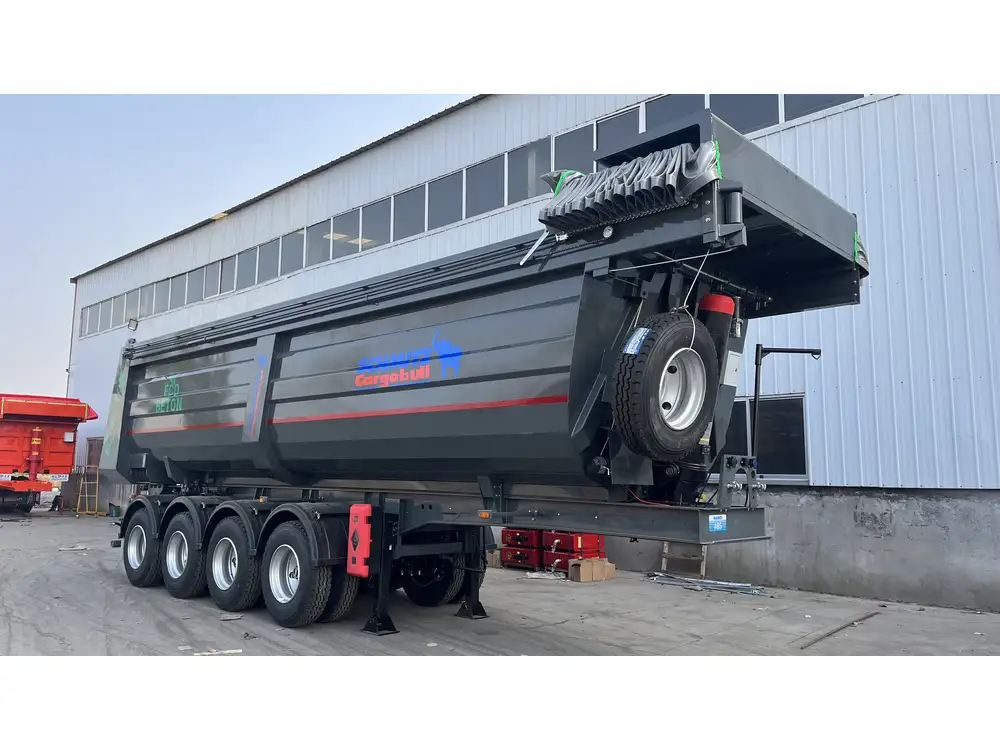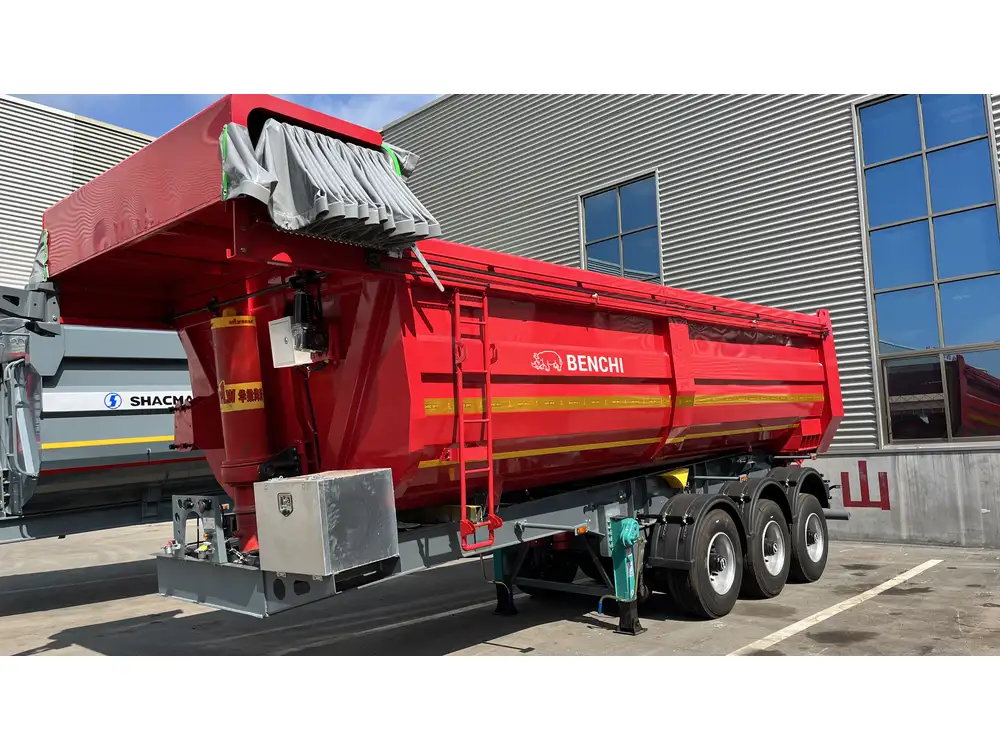Understanding the Legal Requirements
In the world of commercial trucking, ensuring compliance with legal requirements is paramount, especially when it comes to specialized vehicles like vacuum trailers. A vacuum trailer, often used for transporting liquid waste or hazardous materials, poses unique challenges and responsibilities for operators. One frequently asked question revolves around whether a driver can pull a vacuum trailer without a tanker endorsement.
What is a Tanker Endorsement?
A tanker endorsement, officially known as the N endorsement, is an additional qualification on a Commercial Driver’s License (CDL) that allows a driver to operate vehicles designed to transport liquids in bulk. This endorsement is critical for safety, as liquid cargo can shift and cause instability during transportation. Understanding whether this endorsement is necessary when operating a vacuum trailer hinges on several factors, including the trailer’s design, its capacity, and the specific type of material being transported.

Regulatory Framework
The rules governing the operation of vacuum trailers can vary by state and are heavily influenced by federal regulations. Here’s a structured outline of how the regulations operate:
| Factor | Description |
|---|---|
| Type of Vehicle | Vacuum trailers are classified as tank vehicles under FMCSA regulations. |
| Cargo Type | The nature of the cargo (hazardous vs non-hazardous) dictates the required endorsements. |
| Vehicle Capacity | Trailers with a capacity of 1,000 gallons or more generally require a tanker endorsement. |
| State Laws | Individual states may have additional requirements concerning endorsements and licensing. |
It’s crucial for operators to familiarize themselves with both federal and state regulations to avoid legal pitfalls.
Compliance with the Federal Motor Carrier Safety Administration (FMCSA)
The FMCSA sets forth stringent guidelines that all commercial operators must adhere to. These guidelines include:
- Vehicle Classification: Generally, vacuum trailers fall under the category of tank vehicles.
- Cargo Operations: When transporting liquids, regardless of their viscosity or hazardous nature, the requirement for a tanker endorsement often surfaces.
When Is a Tanker Endorsement Required?
An operator does not necessarily need a tanker endorsement for all vacuum trailers. Here are the specific scenarios when it is typically required:
- Liquid Capacity: If the vacuum trailer can carry over 1,000 gallons of liquid, a tanker endorsement is required.
- Hazardous Materials: Any vacuum trailer used for transporting hazardous materials will require a tanker endorsement, regardless of the amount.
- Liquid Movement: If the operation involves continuous suction or movement of liquid, securing a tanker endorsement becomes crucial due to the inherent risks associated with liquid cargo shifts.

Examples of Scenarios
| Scenario | Tanker Endorsement Requirement |
|---|---|
| Pulling a vacuum trailer with a capacity of less than 1,000 gallons carrying non-hazardous materials | Not Required |
| Transporting sewage or chemical waste in a vacuum trailer of 1,500 gallons | Required |
| Operating a vacuum trailer exclusively for dry materials | Not Required |
The Role of State Regulations
While federal regulations set a baseline, each state can impose its own unique regulations regarding vacuum trailers. Operators should conduct thorough research into their specific state laws to ensure compliance.
Key Considerations by State
- Local Endorsement Requirements: Some states may have stricter regulations requiring additional endorsements or licenses.
- Inspection and Certification: States may require vacuum trailers to undergo routine inspections and certifications to ensure safety compliance.
- Insurance and Liability: Coverage levels may also vary by state which could influence the necessity of obtaining a tanker endorsement.

Consequences of Non-Compliance
Legal Implications
Operating a vacuum trailer without the required endorsements can have serious legal ramifications, including:
- Fines: Operators can be subjected to hefty fines if found operating without proper endorsements.
- Liability Issues: In the eventuality of an accident, lack of proper endorsements can lead to significant liability issues both criminally and civilly.
- Reputation Damage: Companies face reputational risk from non-compliance, affecting their standing in contracts and partnerships.
Safety Risks
Some may ponder the safety implications of pulling a vacuum trailer without a tanker endorsement. The risks include:
- Equipment Instability: Inadequately trained operators may struggle to manage the physics of liquid cargo, leading to accidents.
- Environmental Hazards: Mishandling of liquid waste can result in severe environmental damage, potentially leading to costly clean-up and legal complications.

Best Practices for Operators
Ensuring Compliance
- Get Educated: Stay updated on both state and federal regulations regarding tanker endorsements and vacuum trailers.
- Obtain Necessary Training: Invest in training programs aimed at improving operational safety and understanding liquid cargo dynamics.
- Maintain Equipment: Regularly inspect and maintain vacuum trailers to meet safety standards and operational efficiency.
Resources for Operators
Here is a list of resources that can assist operators in navigating the complexities of operating vacuum trailers:
- FMCSA: Their website offers comprehensive guidelines on operating tank vehicles, including vacuum trailers.
- State DMV Websites: These sites often include required endorsements and licensing information specific to your location.
- Industry Associations: Organizations such as the National Association of Small Trucking Companies (NASTC) provide resources for best practices and regulatory updates.

Conclusion: Making Informed Decisions
In conclusion, while operators can often pull a vacuum trailer without a tanker endorsement, they must carefully consider the circumstances surrounding the operation. The rules are highly nuanced and subject to various external regulations and risks.
Summary of Key Takeaways
- Understanding License Requirements: Operators must clearly understand when a tanker endorsement is required based on capacity and cargo type.
- State Regulations Matter: Local regulations can significantly impact operational compliance, and operators must remain vigilant about their particular region.
- Continued Education and Training: To ensure safety and compliance, ongoing education about best practices in the industry is invaluable.
By adhering to best practices, securing the necessary endorsements, and cultivating a robust understanding of applicable regulations, operators can successfully navigate the complexities of pulling a vacuum trailer, ensuring both their compliance and safety on the road.



